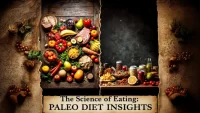Walk down any pharmacy aisle, and you’ll find shelves packed with vitamin supplements—each claiming to be the key to better health. But with so many options, how do you know which ones you actually need?
The truth is, not everyone requires the same vitamins. Your needs depend on factors like age, diet, lifestyle, and health conditions. This guide cuts through the confusion, revealing which daily vitamins are truly essential and which you might be wasting money on.
Understanding Vitamin Basics: What Your Body Really Needs
The Difference Between Water-Soluble and Fat-Soluble Vitamins
Not all vitamins work the same way. Some dissolve in water, while others need fat for absorption.
- Water-soluble vitamins (B-complex, vitamin C):
- Not stored in the body—excess amounts are flushed out.
- Must be replenished daily through diet or supplements.
- Fat-soluble vitamins (A, D, E, K):
- Stored in fat tissues and the liver.
- Can build up to toxic levels if overconsumed.
Why Food Should Come First
Supplements can help fill gaps, but whole foods provide vitamins in their most bioavailable form—along with fiber, antioxidants, and other beneficial compounds.
Essential Vitamins You Might Be Missing
Vitamin D: The Sunshine Vitamin
- Why it matters: Supports bone health, immunity, and mood regulation.
- Who’s at risk for deficiency? People with limited sun exposure, darker skin tones, or those living in northern climates.
- Best sources: Sunlight, fatty fish (salmon, sardines), fortified dairy, and egg yolks.
Magnesium: The Relaxation Mineral
- Key benefits: Regulates muscle function, sleep, and stress response.
- Common deficiency signs: Muscle cramps, insomnia, and anxiety.
- Top food sources: Spinach, almonds, pumpkin seeds, and dark chocolate.
B Vitamins: Energy and Brain Boosters
- Critical roles: Support energy production, red blood cell formation, and brain function.
- Most important B vitamins:
- B12 (cobalamin): Vital for nerve health—often low in vegans/vegetarians.
- Folate (B9): Crucial for DNA repair and pregnancy health.
Vitamins You Probably Don’t Need (Unless You Have a Deficiency)
Vitamin C: Overhyped or Essential?
- Reality check: Most people get enough from citrus fruits, bell peppers, and broccoli.
- Who might need extra? Smokers, those recovering from illness, or people with limited fruit/vegetable intake.
Multivitamins: A Safety Net or Waste of Money?
- Pros: Convenient for those with poor diets or specific deficiencies.
- Cons: Often contain unnecessary amounts—some vitamins can interfere with medications.
Vitamin E: Antioxidant Powerhouse or Overrated?
- Best obtained from: Nuts, seeds, and leafy greens.
- Supplement risks: High doses may increase bleeding risk in some people.
Special Cases: Who Needs Extra Vitamins?
Pregnant Women
- Critical nutrients: Folate (B9), iron, and DHA (an omega-3 for fetal brain development).
- Why supplements help: Prenatal vitamins ensure proper neural tube formation and prevent anemia.
Older Adults
- Key concerns: Vitamin B12 absorption declines with age—supplements may be necessary.
- Bone health: Calcium + vitamin D combo helps prevent osteoporosis.
Vegans and Vegetarians
- Potential deficiencies: B12, iron, zinc, and omega-3s (DHA/EPA).
- Smart supplementation: Algae-based omega-3s and B12-fortified foods can help.
The Risks of Over-Supplementation
When More Isn’t Better
- Vitamin A excess: Can cause liver damage and birth defects.
- Too much iron: Leads to organ damage and oxidative stress.
- Excessive vitamin D: May result in kidney stones and hypercalcemia.
How to Avoid Toxicity
- Get blood tests before starting high-dose supplements.
- Stick to recommended daily allowances (RDAs) unless advised otherwise by a doctor.
How to Choose the Right Supplements
What to Look For
- Third-party tested (look for USP, NSF, or ConsumerLab seals).
- Active forms of vitamins (e.g., methylcobalamin for B12 instead of cyanocobalamin).
- No unnecessary fillers (avoid artificial colors and excessive additives).
When to Take Them
- Fat-soluble vitamins (A, D, E, K): Best with a meal containing healthy fats.
- Iron: Take with vitamin C for better absorption, but avoid calcium at the same time.
Debunking Common Vitamin Myths
Myth: “If Some Is Good, More Must Be Better”
- Truth: Megadoses can be harmful—balance is key.
Myth: “All Supplements Are Regulated Like Drugs”
- Reality: The FDA doesn’t approve supplements before they hit shelves—quality varies widely.
Myth: “You Can Replace a Bad Diet with Vitamins”
- Fact: Supplements can’t compensate for poor eating habits.
FAQs: Your Top Vitamin Questions Answered
1. Should I take a daily multivitamin?
Only if you have nutritional gaps—otherwise, focus on a balanced diet.
2. Can vitamins improve hair and nail growth?
Biotin and collagen may help, but genetics and overall health play bigger roles.
3. Are gummy vitamins effective?
Some are, but many contain added sugars and lower nutrient levels than pills.
4. How long does it take to notice vitamin benefits?
Depends on deficiency levels—some people feel better in weeks, others take months.
5. Do vitamins expire?
Yes! Potency decreases over time—check labels and replace old bottles.
Conclusion: Smart Supplementation for Optimal Health
Vitamins can be powerful tools—but only when used strategically. Instead of blindly popping pills, focus on:
✔ Eating a nutrient-rich diet first.
✔ Testing for deficiencies before supplementing.
✔ Choosing high-quality supplements when needed.
Want personalized advice? Consult a registered dietitian or doctor to tailor a plan for your unique needs.
Found this helpful? Share it with someone who’s overwhelmed by vitamin choices!
(Internal links: [Best Foods for Vitamin D], [Signs of Magnesium Deficiency])
(External sources: [NIH Office of Dietary Supplements], [Harvard Health on Vitamins])











